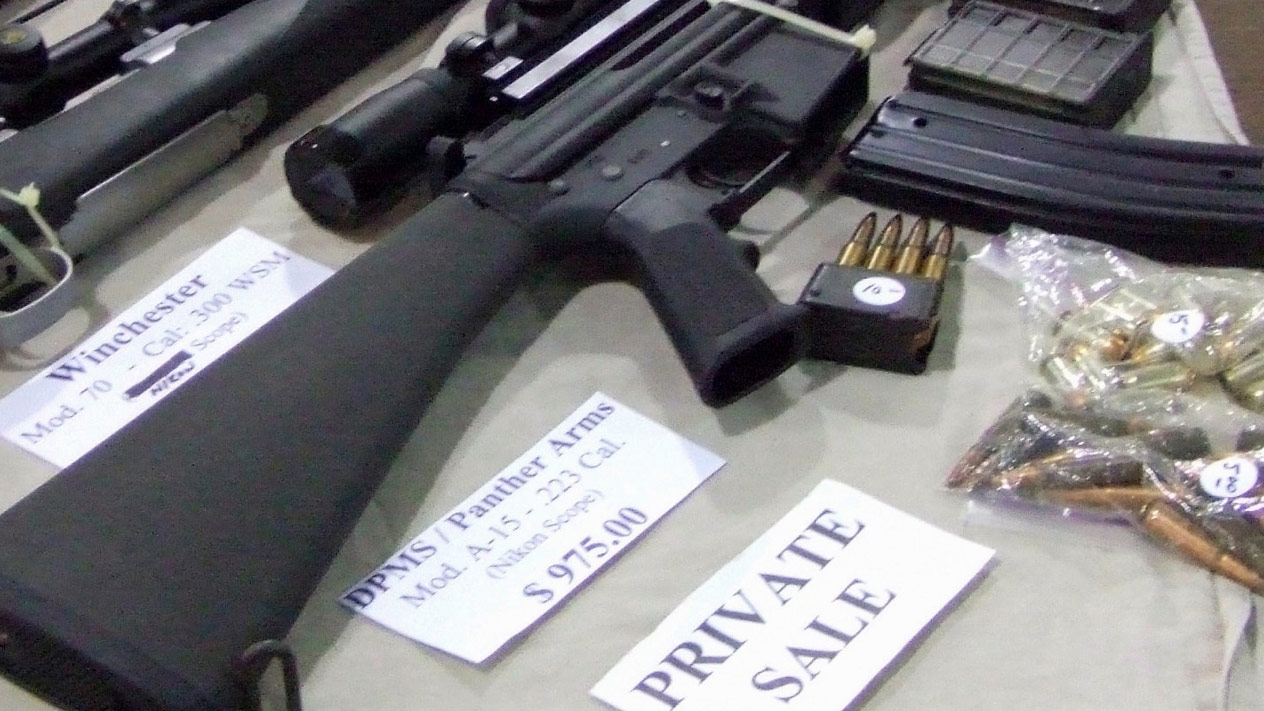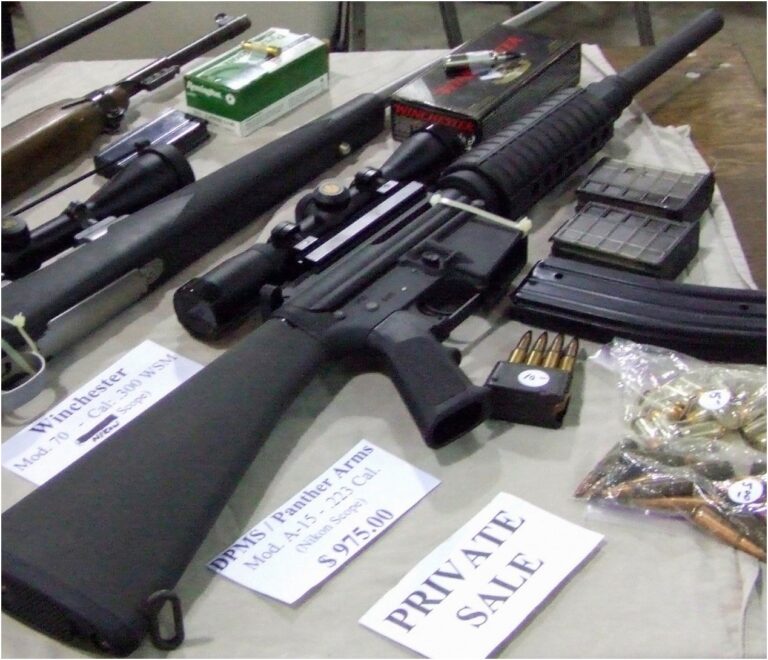New Mexico has joined a rarefied group, becoming the 20th state to require background checks for private gun sales and the surrender of weapons by domestic abusers. New Mexico rates 10th in the nation for women killed by gun violence, according to the Violence Policy Center.This change was overshadowed by declarations from local county sheriffs that they would not enforce the law, using southern-style nullification as their rationale. These new laws recognize the fact that guns are far deadlier than typical objects found at a yard sale and should be treated as such. Riddick can kill with a tea cup, but hardly anyone else can. These laws make both owner and buyer legally responsible for the first time.The real change is the venue’s responsibility; it’s called "the gun show loophole" for a reason. People sell guns at glorified flea markets without checking if purchasers can legally own a gun.As long as selling guns without a background check was legal, it was easy to stage shows at big venues like Expo New Mexico. Now, it’s clear that no public organization will facilitate lawbreaking because of liability insurance. In the fine print of any insurance policy, the insured promises to follow local, state and federal laws; violation of this clause allows insurance companies to deny any claim.The onus of responsibility is not thrust upon a popularly elected sheriff, but an innocuous building manager. Should a throttle stick open and a monster truck climb into the crowd at Tingley, an insurance company would likely cover the damages—after an insurance company investigation including a determination that all local laws were followed.We are a society regulated by people who vote, sign laws and then write checks for insurance, because accidents and lawsuits happen every day of the year.At the last gun show in Albuquerque in December 2018, guns had to have their actions zip-tied open—so no ammunition could be loaded—and no loaded guns could be carried by anyone, save police. This was a requirement set by the insurance company. Dozens of attendees were accidentally shot at gun shows—until this precaution was taken—joining the roughly 80,000 killed or injured with guns every year.The hypocrisy of this requirement was not lost on gun show visitors packing a big iron on their hip—they waited patiently to have the new policy explained to them by an unarmed security guard who stoically ignored reddened, rage-filled faces as he zip-tied guns open. The outrage! Imagine not being able to carry a loaded gun at a gun show. You’d think it was the annual NRA convention.That brings us to the "shire reeve" or "shirekeeper" concept, an English term that evolved into the word and concept of “sheriff.” Originating in medieval times, the sheriff was responsible for enforcing the king’s law in unincorporated areas, the shire and Sherwood Forest. Americans have sheriffs for the same reason: the law extends even into sparsely populated areas outside cities and towns.For the most part, these places don’t have the venues or populations for gun shows, but they do have crimes where the actions of law enforcement are the subject of litigation. One can scarcely imagine the legal peril of a sheriff refusing to enforce gun laws when an illegally obtained gun gets used in a crime.The NM Constitution allows a sheriff to enforce laws—not to decide which laws are constitutional. We call that person a judge. If a sheriff promotes publicly ignoring a law, defendants’ attorneys will inevitably cite that action in cases where clients are charged with illegally selling or possessing a gun subsequently used in the commission of a crime.Under the new state law, that’s just a misdemeanor; the real lightning comes from civil liability lawsuits.Sheriff’s departments all have vehicles, aircraft, buildings and personnel that must be insured by insurance companies that require gun show guns be rendered inactive and that all local, state and federal laws be followed. It would only take one successful civil wrongful death case to break a county or municipality, especially if insurance won’t cover costs due to violations of state law.The road to proactive change in public opinion about the danger of guns in public settings and who has access to them began with the mail-order army surplus rifle used to murder a young US President and didn’t end at Sandy Hook Elementary School with an AR-15.It was three days past Noah Pozner‘s sixth birthday when he was shot 11 times at close range with an AR-15. From the depths of a unfathomable pit, his mother’s voice sounded robotic when she recalled asking the police "Why were his hand and jaw missing"?Pozner’s hand and jaw were completely vaporized by point-blank gunfire.In that "last full measure of devotion," the principal and teachers threw themselves at the murderer only to be cut down by hypersonic bullets delivered in half-second intervals. Had it been a manual bolt-action rifle, it could have been wrested from the deranged gunman between rounds, but the seemingly bottomless well of ammunition in the standard US Army-issued 30-round magazine and auto-reloading made intercession impossible.This horror galvanized millions of American mothers. In red T-shirts, they outnumbered white, burly dudes brandishing banana-clipped AR-15s on the statehouse steps, making this change in public opinion absolutely apparent to our lawmakers.The clear message is that we must ensure that people buying guns—no matter where they are purchased—have a legal right to do so.While our sheriffs wore guns into the Roundhouse to deliberately ignore state law, students inspired by Parkland survivors staged a "die-in" at our state capitol, echoing similar demonstrations across the globe, including those in countries where you can no more buy a gun than you could a hand grenade. At the March For Our Lives rally in Berlin on April 20, 2018, a bewildered German girl asked, "Why would you even want a gun"?Why, indeed.
News Editor’s Note: After this column arrived on Monday afternoon, NM State Attorney General Hector Balderas warned in a widely-disseminated policy letter that sheriffs and police chiefs across the state must enforce new gun laws. In the letter, Balderas was firm, telling his fellow officers, “As law enforcement officials, we do not have the freedom to pick and choose which state laws we enforce.”






